December 2018
Thoughts about the year ahead
- by Alyson Shane
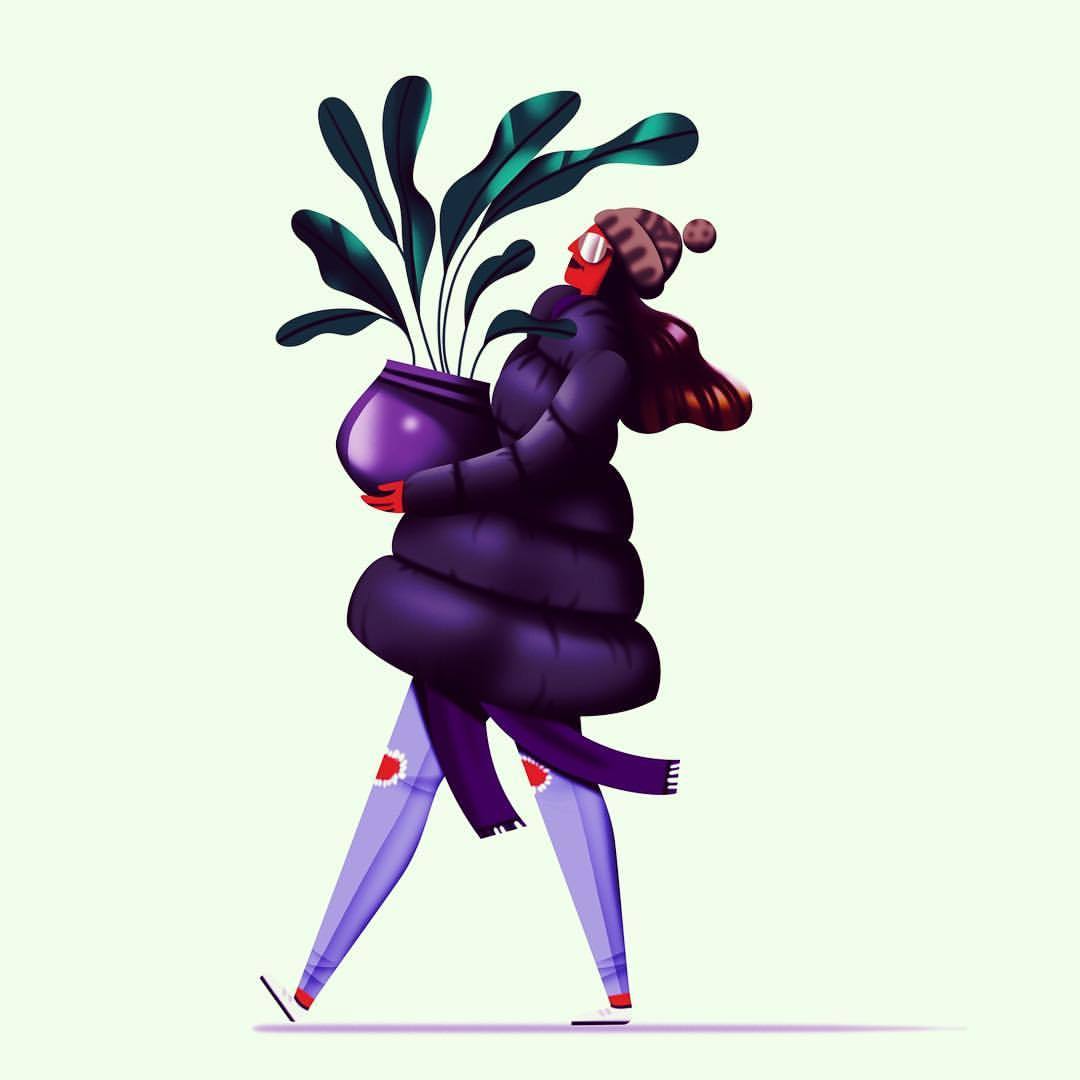
It feels like 2019 both snuck up on me and couldn't get here fast enough.
Not because 2018 was bad personally - not in the slightest. In fact, I'd say John and I both had banner years on pretty much all fronts.
We, like many of the people we know, are lucky.
But it was an exhausting year for lots of other people, both for people we know and, it seems, for the world at large.
There seemed to be way more bad news than good news, which I'm not even sure is true but when all the bad news feels like overwhelmingly bad news it's hard to not focus on the stuff that makes you want to sign off of the internet permanently and go live in a secluded log cabin on a mountain somewhere.
I get those feels, man.
But I'm trying to be more positive these days, so in light of that I thought I'd share some of the stuff I've been reflecting on in the wake of the final days of this The Year of Our Lord 2018.
Here's what I'm planning to work on in the coming year in no particular order:
I want to use social media with more intentionality.
I use social media pretty much all day every day because I run a digital marketing company
(shameless plug, heh)
but just because I use it and read about it all the time and think about it from a strategic perspective doesn't mean that I'm using it in a way that adds value to my personal life.
I plan to spend less time aimlessly scrolling through Instagram while I watch binge-watch something on Netflix, and more time painting or drawing while I binge-watch, listen to a podcast, or work through an audiobook.
I plan to spend less time RTing and Liking, and commenting instead.
Taking the time to answer those question boxes on Instagram stories and having small conversations with real people more often.
I plan on ReTweeting fewer white men.
Someone on the most recent Pod Save America episode pointed out that lots of influential journalists and politicians are white men, and that they were going to make a point to RT more diverse perspectives than those of the de-facto white guy in the room.
I liked that point, and am going to try and do the same.
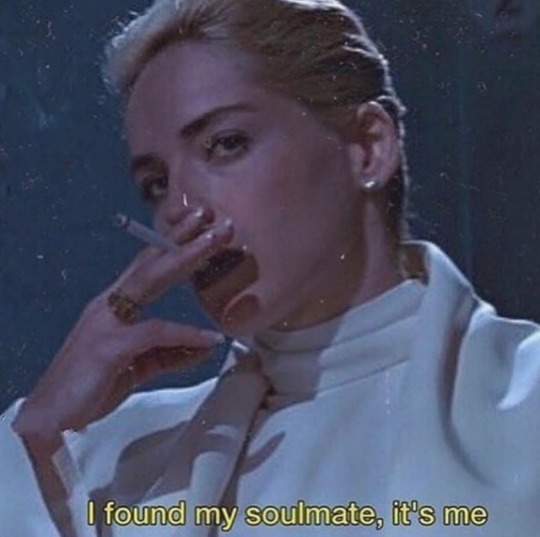
I want to read more books.
I read a lot of articles, but I don't read as many books as I'd like. This is problematic for me because, while reading lots of articles helps me construct a well-rounded model of an idea or concept, sinking down into a book offers me the chance to go much deeper on a subject than stringing together a bunch of articles tends to offer.
There's a great article about how reading books makes us more human that's informed my thinking a lot in this area.
I read a lot this past year, but I could have read more books if I'd put more effort into it. I got a bit lazy around summer, I think, since things were so busy.
I still managed to read quite a lot, though: I read and was devastated by Hemingway's A Farewell to Arms which I read while we were in Belize. I read Ubik and Little Brother and a bunch of Ted Chiang short stories and others through book club; I read Crossing the Chasm which took me way longer than I'd have liked and Fire and Fury which was infuriating and scary, and a couple of others, too.
I also just finished reading Adult Onset by Ann-Marie MacDonald, which was terrific.
Making time to read is hard even if you love reading though. Life gets in the way.
But I need to make more time for it because it helps me be a better
writer
person
version of myself.
So this year I'm planning to carve out more time for reading books, which bodes well since we'll have a lot of free time during our flights to Thailand, and I can read quickly af.
If you have any suggestions for books I should read, tweet them at me.
I want to forgive more readily.
The older I get the less I want to hang on to the angry things that kept me from happiness when I was younger.
I have a lot of things I can be angry about; plenty of things I can hold onto and wield like weapons. Things to keep me fired up, feeling angry, churning over thoughts and feelings.
And sometimes that happens, don't get me wrong.
But I want to put those things down more quickly in the years ahead.
Not just as it relates to my loony family, but as it relates to how I feel when I disagree with someone, or when I feel slighted or unheard or misunderstood.
I've realized in the past few years that being intentionally happy and focusing on the positive things on purpose has only made me more happy over time.
It also seems to have a positive impact on people around me, which is something I'd like to continue to foster.
There's a neat segment on the latest Hidden Brain podcast that talks about "contagious compassion" which relates to this concept that influenced how I think about this idea.
I plan on continuing to build on that because that seems like a good quality to cultivate in myself.
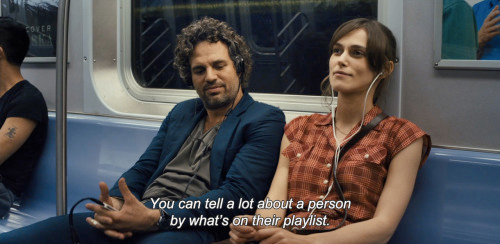
I want to spend more time with my food.
John and I already garden aggressively each summer, but finding new ways to cook, can, make jam, or otherwise do stuff with the food we buy and grow is something that gives me a sense of comfort and pride.
There's nothing quite like filling the house with the smell of simmering veggie scraps or chicken bones for broth
(except the smell of soup made at a later date)
or spending an afternoon listening to Frank Sinatra and the old classics while slicing up cucumbers for pickling, or tomatoes for a salsa.
Bonus points if there's a mojito or a well-garnished caesar nearby.
But there's more we can do to eat better, waste less, and be more creative with our leftovers and combining the odds and ends into our meals.
So this year I'm gonna figure out some "kitchen hacks" and become an even better, less wasteful cook.
I want to write more.
I've pigeonholed myself with my writing in the last few years, I think, and it's time to start exploring how to express myself using writing in other mediums.
I've downloaded Google Keep and am going to keep a list of notes, thoughts, phrases, and quotes collected as I go about my day. I've been using it over the past few days and it's been really rewarding to capture those little narrative moments as they happen.
Maybe I'll write a book with them someday. Who knows.
I'm planning to experiment more with writing poetry, and not judging my poems so damn much. Most poems suck, anyway, so it's absolutely fine for mine to suck as well.
I'm also planning to start hashing out some short stories. Making sense of some of the ideas I've had rattling around in my brain since I read Stephen King's On Writing a few summers ago and promptly got "too busy" to expand on them.
It feels like the right time, so I'm planning to capitalize on that feeling in the future.
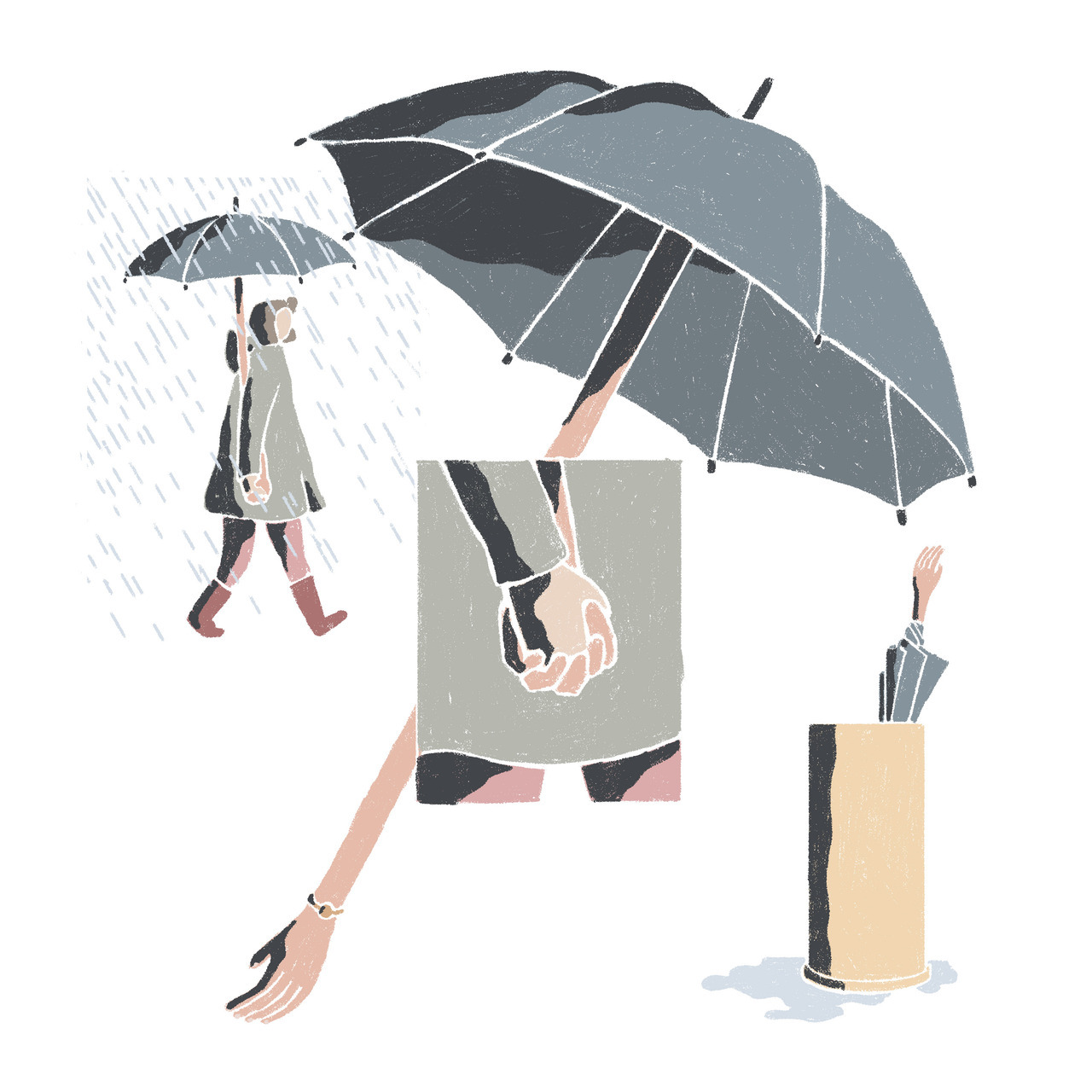
I want to do more crossword puzzles.
John and I do crossword puzzles on our phones together and it's become one of my favourite in-between activities that we do together. You know what I mean:
In-between prepping a meal and waiting for it to cook.
In-between getting ready for a ride and getting picked up.
In-between waking up and getting out of bed on the weekends.
It's a nice little mental stretch, and fun to do.
We use Redstone Games' free app Crossword Puzzle, and so far have liked the collections from D. Diebold the best, I think.
Happy 2019!
Whether 2018 was your best or worst year, I hope 2019 brings you the best of everything: friends, family, and personal and professional success.
It's always nice to have an opportunity to reflect and plan for the future; thanks for reading!
Do you have any plans for the coming year? Any ideas you're planning to work on, or goals you've set for yourself? Tweet 'em at me and let's chat.
We're going away soon and I can feel it
- by Alyson Shane
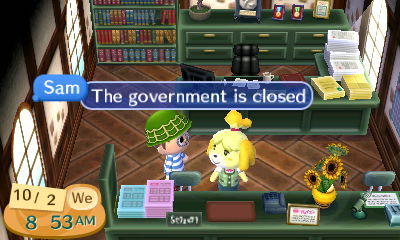
A lot of people tell me that they don't get nervous or excited before a trip until they're in the car or on the plane, but not me.
My favourite part of doing anything is thinking about doing it in advance of doing it.
We're going to Thailand and Cambodia in a few weeks and I've been daydreaming about beaches and big bowls of noodles and night markets and tuk-tuks for months, now.
But more than my excitement, I can feel that we're going away soon in how I feel about my day-to-day life.
I'm enjoying the small things a little more. Like how the winter sunlight looks in the afternoon, or how Toulouse curls up between my legs when I'm sleeping
even if this does trip me up almost every time I need to get up in the middle of the night.
Today we did our usual trio of errands: Shopper's, the LC, DeLuca's.
We put on backpacks and brought extra bags and laughed and tried liquor samples and bought a bunch of fancy cheese and artichoke hearts and fresh bread and a vanilla bean soda.
Tomorrow we're making a special dinner together and I'm going to make a nice mulled wine to serve with the pizza we're making from scratch and all the fancy cheese we're going to eat.
Tonight we're going to Thida's Thai with some friends and I'm ordering the super-spicy chicken pad Thai, my favourite
which I know is nothing like what I'm going to be eating in Thailand in a few weeks
and in a few days we'll be ringing in New Year's in our pyjamas with our best friends eating fancy cheese and drinking wine and popping bottles of bubbly to celebrate spending another year together.
The family I've built for myself in the city I love.
How sweet it is to be together
and how fleeting our time together is before we leave.
Are you a morning person?
- by Alyson Shane
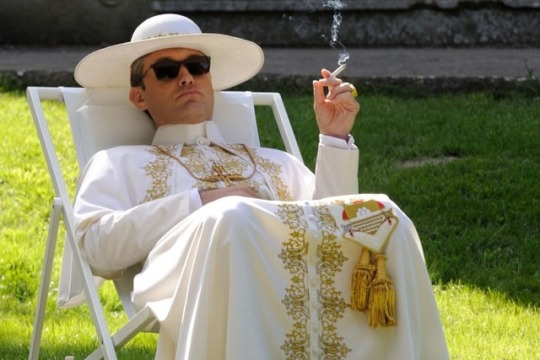
I didn't used to be. I feel like I'm developing an affinity for mornings as I get older though.
During the week we wake up at 7:30 AM but if I could manage waking up earlier and not be a giant grouch who hates her life I'd get up at like 6 AM or even 5 AM if I could.
I do my best work in the morning when my mind is clear and every time we travel or I find myself randomly up super early in the morning, even if I'm tired I still start my day feeling like
yeah, I got ahead of all that shit I had to do today.
I've been up for about an hour and have already snugged John and Toulouse in bed, fed the cats, took a photo of the street because I love quiet winter mornings
and made a cup of tea which is also something I've started doing as I've gotten older.
We really do become our parents in weird ways.
My mom is from England but she moved to Canada when she was 18, probably to get as far away from her mother as possible, which is also the reason I moved to Ontario when I was a the same age.
She's British in the ways you expect British people to be British:
she has a gap between her two front teeth, which I also have
she subscribes to a "know your place" and a "stiff upper lip" attitude when it comes to work and talking about your feelings
and she drinks tea like water.
My mom used to drink Tetley Orange Pekoe tea, and there was a whole area of the kitchen dedicated to the cups and plates and sugar containers and other paraphernalia needed to make it.
I don't remember if she took sugar and cream, but I do.
It seems like the older we get, the more we search for things that take us back to the feeling of safety we had when we were kids. Maybe that's why I drink so much tea these days.
It makes me feel safe and the smell has an old familiarity to it. Like a well-read book or an old leather jacket or a hug from your favourite uncle.
Tea was for the times in-between fighting. When my mom and I would watch Star Trek or some HGTV show together, or sit on the deck while she did crossword puzzles.
Sometimes I dream about her. I'm not sure if it's a memory, or just something I've dreamed enough times that it's real.
I'm sitting at the dining room table and my mom is looking out the kitchen window in our old house on Murray Avenue. It must be early morning because the air feels filled with light. She's wearing a long housecoat in a soft colour, and the kitchen smells like orange pekoe.
It's so vivid that it feels like I can reach out and touch it, but it's just a dream. A memory. Some whisper from a long time ago.
I think about her when I make the same tea during these early mornings by myself.
It's like a ritual; an homage to the parts of my mother that aren't stained by her words or behaviour.
I wish I could go back through time to that golden morning and talk to her. Ask her questions over the old, heavy dining room table over multiple cups of orange pekoe.
Who are you, Mom?
Why are you so angry all the time?
What are you so afraid of?
I've spent so much time asking myself those same questions, but I don't think I'll ever know what her answers are.
Most of the time it feels like the closest I can get is making myself a cup of tea in the early morning light
thinking about all the ways we're so different, and the small, quiet ways that we're the same
and how maybe that's enough.
People are all worked up about a Christmas song
- by Alyson Shane

And frankly I think we're worrying about the wrong thing.
What worries me isn't whether a song that was written 74 years ago is sexist
(it isn't)
what worries me is that our society is moving to a place where our first instinct to something we don't like is to ban it outright.
That's some Ray Bradbury-style shit right there, folks.
Last night I sat down and looked at the lyrics, and at first glance I could totally see why some people think the song is concerning: on the surface it sounds like guy trying to pressure a girl into staying the night, and that kind of behaviour, rightfully, deserves some scrutiny.
So let's dig into the historical context of the song a little bit:
"Baby, It's Cold Outside" was written in 1944 by the songwriter Frank Loesser (who also wrote Guys and Dolls) so he and his wife Lynne could perform it at parties. He sold it to MGM for use in the film Neptune's Daughter and it was a huge hit, winning an Academy Award in 1950.
It's a duet sung back and forth between male and female singers, and the plot, basically, is that a man is trying to get his date to spend the night and she's demurring.
By modern dating standards that seems, at first glance, problematic.
Obviously a man pressuring a woman to stay the night is inappropriate, right?
Except when we consider the song in the context of the time it was written:
In 1944, women were under a ton of pressure to appear modest. Being labelled as "a slut" could have serious social ramifications, so women were expected to put up a fight regardless of whether they wanted to engage in sexual activity or not.
Which is what seems to be what's going on when the female singer says:
"I ought to say no, no, no, sir, at least then I can say that I tried."
I could dig into this further, but there's a great Medium post that breaks down a lot of what I'd say anyway that I recommend you check out instead.
It's also worth noting that the expression "what's in my drink?" was a popular phrase people used when they were getting tipsy, as noted by Frank Loesser's daughter in an interview.
When the song was written the expression had nothing to do with date rape, or drugging someone's drink; the lyrics only become problematic when we view them through the narrow lens of the present.
But whether or not we agree on our interpretation of "Baby, It's Cold Outside" doesn't matter anymore, because banning it from the radio eliminates the opportunity for constructive discussion.
Worries About Censorship
Banning a song, or a book, or a film, isn't how societies solve problems; it's how we repress discussion and silence alternate viewpoints.
And, frankly, it scares me that this is where we're at as a society.
I've struggled to talk about this publicly, and have been afraid to do so because I'm scared of the political blowback I may receive.
I've watched people's lives get upended, their social standing destroyed, and their friends and colleagues turning their backs on them because they expressed an opinion that was unpopular, or that people didn't want to hear.
But the honest truth of it is that censorship doesn't help us, it hurts us.
I know this because I've studied it. I have a degree in rhetoric. I've studied oral history. I've spent close to a decade of my life dissecting how we convey our thoughts and ideas, and how our communication has changed over time.
I've taken a deep anthropological dive into how words can be weaponized against us
(which is the biggest reason why I find Conservative rhetoric scary and problematic, but that's a topic for another post)
and what scares me the most isn't what we say, it's when we stop people from saying it, and who does the censoring.
And because this censorship is coming from The Left it's easy for those of us who identify as left-leaning to hand-wave away how concerning these tactics are because we assume we have a moral high ground.
I mean, who wouldn't want to get behind ensuring that women are protected and respected in our society? That's an easy sell, right?
Except when we assume we have the moral high ground we stop looking critically at the larger implications of the actions we take.
When we demonize people who disagree with us as being "out of touch" or "dated" we hand-wave away the important discussions that need to take place in order to get everyone on the same page
(or, at the very least, reading the same book)
which is actually how we move forward together as a society.
What's Next?
Censorship is problematic because when we draw a line between "right" and "wrong" we leave no room for context and nuance.
We eliminate the opportunity for discussion and exploration because we've already decided (through censorship) that something has no place in our public discourse.
As our society continues to grow and change, we need to be able to have ongoing discussions about what is, and isn't, appropriate in our modern context, but censoring something we don't agree with isn't how we have healthy discussions.
The ugly truth of it is that censorship is a slippery slope to a totalitarian state, and I worry that because we've begun censoring things under the guise of "equality" and "feminism" we're ignoring the deeply troubling ramifications of adopting these kinds of tactics.
Because censorship seems OK as long as as you're not the one being censored.
But if history tells us anything, it tells us that the people we need to be the most concerned about are the ones who think the have the moral high ground
because it's those people who will turn on you the fastest.
What's your relationship with your parents like?
- by Alyson Shane
If you're like me, or even like a lot of other people out there, then you probably have a somewhat complicated relationship with your parents.
These conflicts and complications happen because dynamics are difficult to navigate; it's hard to be emotionally connected and love someone who may be vastly different from you, or who hurts you, confuses you, or struggles to connect with you emotionally.
As children, it falls on our shoulders to try to understand and unpack our parents:
What decisions and life experiences led them to this place in life?
How did these experiences shape their personalities and parenting style?
What can we do to bridge the gap between their values and beliefs, and those of a new generation?
(I think about these things a lot, in case you haven't noticed.)
Someone else who clearly thinks about these things a lot is Tetsuro Shigematsu, the performer behind the play Empire of the Son, which is currently playing at the Prairie Theatre Exchange.
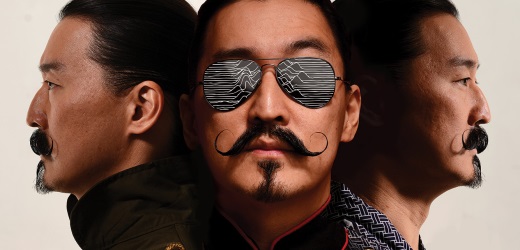
Image via the Prairie Theatre Exchange
Empire of the Son is a one-man show written and performed by Tetsuro Shigematsu (former host of CBC Radio One’s The Roundup) which employs a variety of mediums from monologues, to video, recorded audio, to live-action video using miniature sets, and more, to explore the complex relationship between himself and his father, also a CBC broadcaster.
Or, as the poster so aptly put it: Two Generations and the Silence Between Them (how perfect is this description, by the way?)
The play focuses on Shigematsu's emotionally distant father, Akira, and his struggle to reconcile his father's lasting impact through his work as a radio broadcaster for the BBC and CBC, and how emotionally distant and reserved he was with his family.
I'll be honest: I typically have a hard time getting into one-man shows as I tend to find the disconnect when an actor switches between characters to be rather jarring, but there was a distinct physical difference between when Shigematsu was "Tetsuro" and when he was acting as "Akira" that may have turned me into a one-man show convert:
Shigematsu's impressions of his father seemed to take over his whole body; his posture changed, his facial expressions changed, and his inflection and pronunciation were so dramatically different from the jovial person telling the story that it often felt like there was another person onstage, entirely.
At the same time, you could tell that these impressions, and his ability to deliver them so effectively, were crafted with the kind of love and intimate knowledge that only very close family members and friends tend to have with one another.
As Shigematsu led us through his father's life we came to understand the contradiction he felt about his father: for someone who broadcasted to the world and regularly talked to people across the globe, he struggled to open up to and connect emotionally with his own children.
It's revealed that though his father was an influential figure and led a storied life which included some astounding moments (having tea with the Queen, being present in the room when Marilyn Monroe serenaded JFK, and - most notably - being in Hiroshima when the atomic bomb was dropped) Shigematsu only began to 'real' conversations with his father when he began interviewing him towards the end of his life.
This contrast hit home, and served as a reminder that, often, the most we know of previous generations is what they choose to share, and unless we take the time to tease it out of them, their stories and experiences may be lost forever.
(As someone who studied oral history in university, I found this fascinating, by the way.)
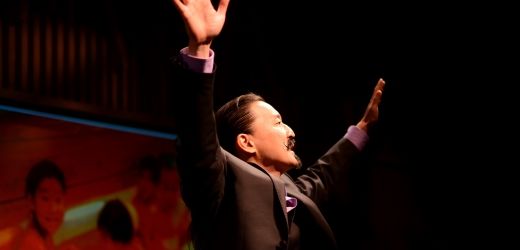
Image via the Prairie Theatre Exchange
This intimate solo performance was enhanced by Shigematsu's larger-than-life stage presence and his interesting use of a camera and miniature props located on a long table onstage. A DSLR camera (I think) was strapped to it, and at times Shigematsu would move casually over to the table, arrange some of the tiny props, and stream the live video camera footage to the screen behind him.
If this sounds strange, it was - but that only enhanced how effective this method of adding an additional visual layer was to the overall story. Personally, I've never seen someone manage to imitate two different people and move around on a miniature skateboard with just their middle ad index fingers, have you?
At the outset of the performance Shigematsu shares that he hasn't cried since he was a child, and shared his hope that performing this story in front of an audience would help him do so.
Personally, I shed enough tears for both Shigematsu and myself.
This poignant, captivating and strikingly funny memoir is one that I highly recommend seeing.
Additionally, we were lucky enough to catch Empire of the Son on the night of the Prairie Theatre Exchange's Leap Series, a new event in partnership with Manitoba Music focusing on out-of-the-box plays and music from local artists. If you're looking for a date night, or an opportunity to dive into the world of independent theatre, make sure to check out their next Leap Series event happening in February (and say hi to me if you do!)
**Big thanks to the folks at the Prairie Theatre Exchange for giving me free tickets to see their 2018/2019 season in exchange for these posts. It's a wonderful treat to be able to support and promote Winnipeg's independent theatres.**
